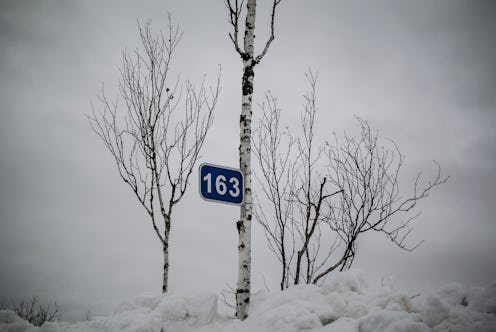Books
The Unexpected in 'All Russians Love Birch Trees'
Olga Grjasnowa's All Russians Love Birch Trees (Other Press) is a melancholy yet lyrical novel that follows the life of Masha, a young Jewish immigrant to Germany from Azerbaijan. The novel, originally published in German, navigates the politics of the immigrant experience and the crushing power of grief.
When Masha was a child, her family immigrated from war-torn Azerbaijan to Frankfurt, Germany. Years later, Masha has almost perfectly assimilated into German society. She speaks the language — several languages, in fact. She's in graduate school studying still more. She has a German boyfriend. She's created a life for herself. And yet the past is never quite as far as she would like it to be.
When a new tragedy strikes, bringing up memories from her past, Masha is unable to properly cope. The novel follows her grieving process from Frankfurt to Israel, the journey of a woman who has already been through the worst and feels she can survive anything, anywhere.
Though immigration novels are common in an American context, this book is a unique take on the genre, though its themes are universal. Masha spent much of her childhood in circumstances which were unstable at best and dire at worst, yet though her whole world was destroyed, few people in Germany remember much (if they ever knew anything at all) about devastation in a tiny country like Azerbaijan. Masha is surrounded by people who will never understand or even suspect the things she has been through. And so she always feels like an outsider.
The prose style compliments this sense of isolation. Masha sees things as though from a great distance. The narration somehow leaves the impression that even the thing Masha herself does are somehow happening to her. She seems to be adrift in the circumstances of her life, not fully a part of the world around her. The book itself even opens with the evocative line "I didn't want this day to begin." And yet the day does, and Masha's life unfolds anyway.
Yet the book is not without humor or irony. And, in fact, it is sometimes walks the dividing line so perfectly that many instance could fall into either category. Is it humorous or sad when Masha's computer is shot by Israeli security officers? Is the fact that visitors to the next door youth center "often mistook [her apartment's] front door for a urinal" depressing or hysterically funny. The narration allows the reader the choice to make up their own mind. To Masha it is simple the distant circumstances of her own life.
The book is an insightful look at three countries, at the experience of being an immigrant, and at the pain of loss. It's a quiet yet rich novel that speaks to experiences often not represented in literature and also to the universal feelings of grief and isolation.
